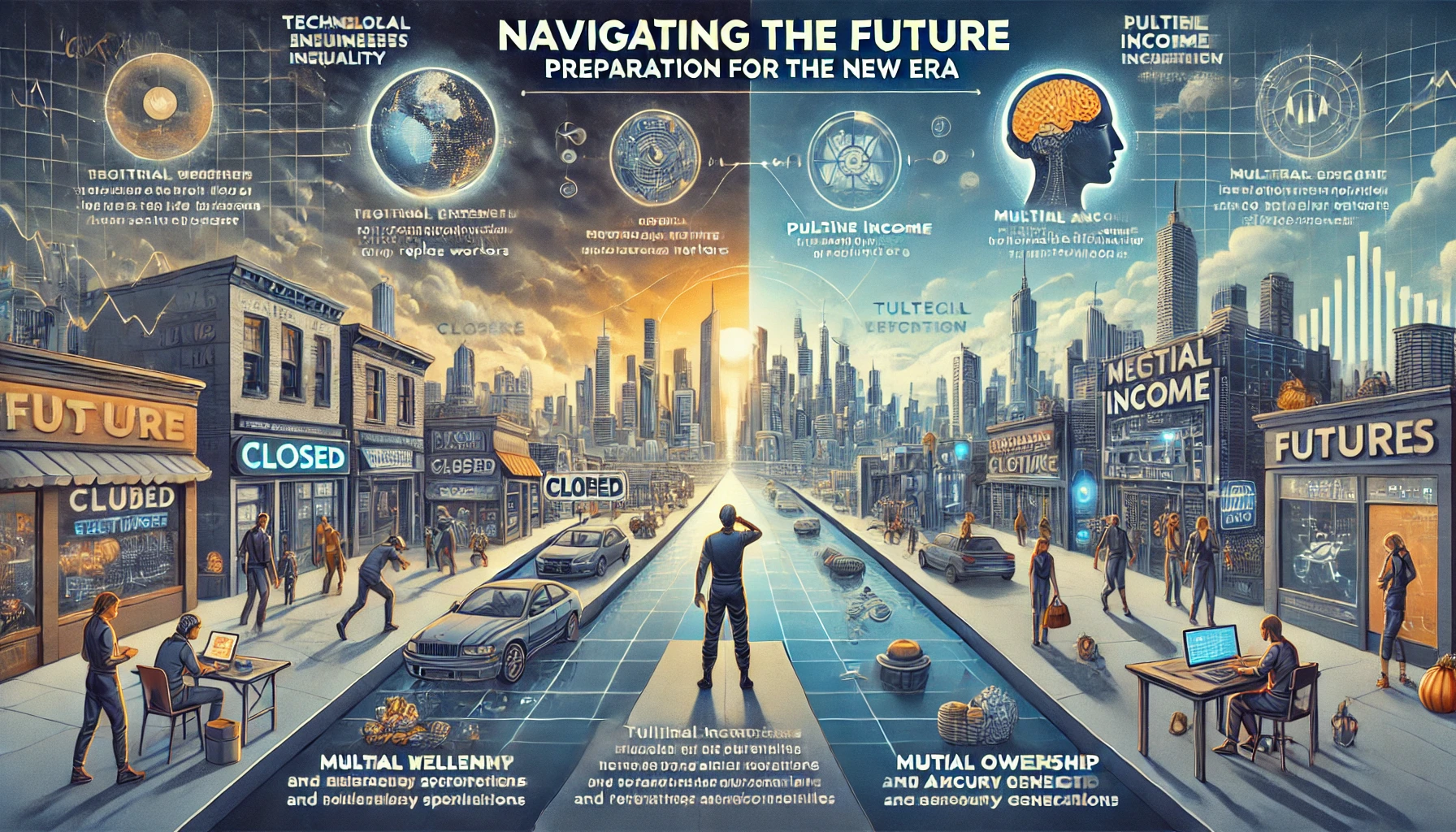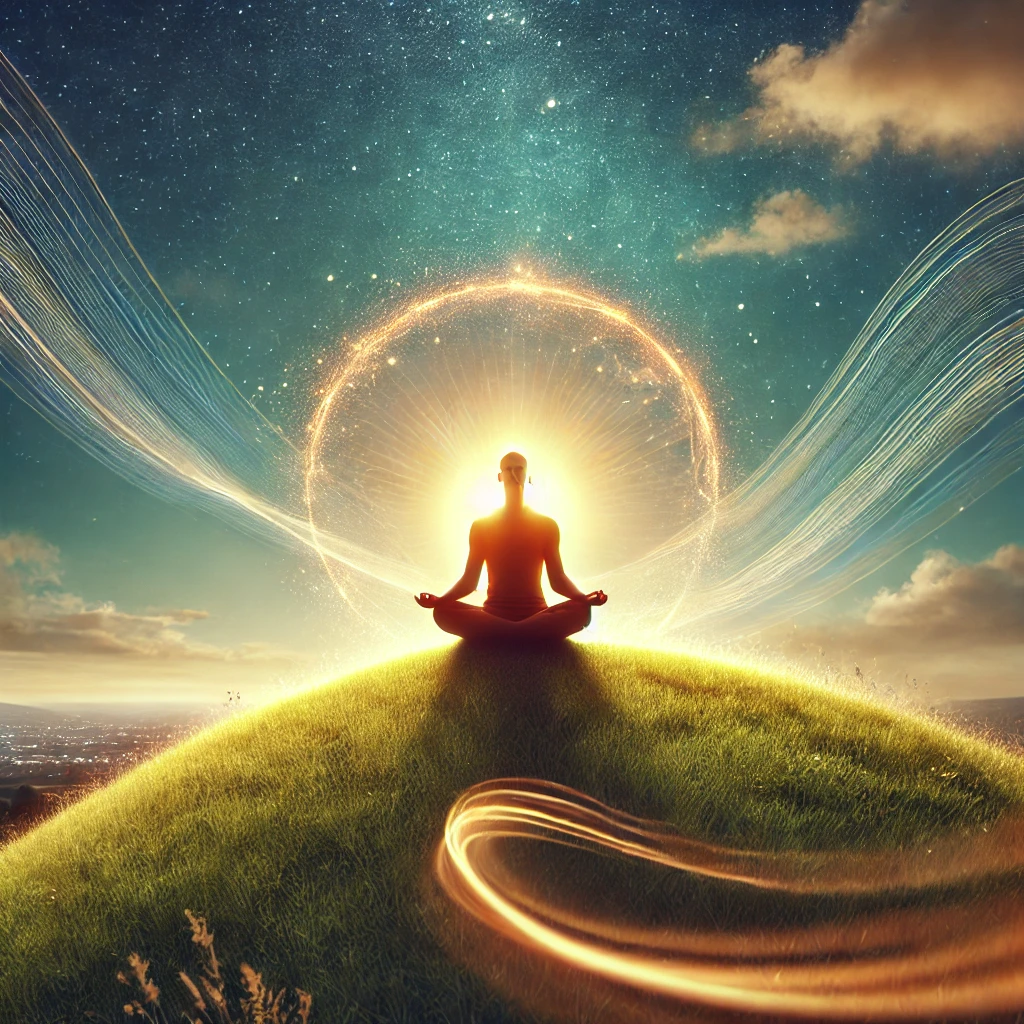O.P.K.
เจาะลึก "ครุฑพาหนะเทพบุตร" : ทวารบาลแห่งธรรมะข้ามกาลเวลา
ต้นกำเนิดแห่งสวรรค์และมนุษย์
การถือกำเนิดในคัมภีร์วิษณุปุราณะ
ชื่อเต็ม: ครุฑพาหนะเทพบุตร
ชื่อหมายถึง:"ผู้เป็นพาหนะแห่งเทวบุตร"
อายุ:5,000 ปี (ร่างกาย), เป็นอมตะ (จิตวิญญาณ)
สถานะ:ทวารบาลระดับสูงในพุทธศาสนา
```mermaid
graph TB
A[พระวิษณุ<br>ผู้สร้างจักรวาล] --> B[ประทานชีวิต<br>ให้ครุฑ]
C[นางวินตา<br>มารดาแห่งนก] --> B
B --> D[ครุฑพาหนะ<br>เทพบุตร]
D --> E[ถวายตัว<br>เป็นพุทธบูชา]
E --> F[ได้รับตำแหน่ง<br>ทวารบาลแห่งธรรมะ]
```
ลักษณะทางกายภาพอันโอฬาร
· ปีก: กว้าง 1 กิโลเมตร เมื่อกางเต็มที่ สีทองอร่ามดุจดวงอาทิตย์
· ร่างกาย: ครึ่งนกครึ่งมนุษย์ ใบหน้าเป็นเทวบุตรรูปงาม
· ดวงตา: สีทองเรืองรอง มองเห็นได้ทั้งสามโลก
· เกราะ: ทำจากวัชรธาตุ engraved ด้วยมนตร์พุทธะ
· อาวุธ: คทาพระธรรมที่สร้างจากแสงแห่งปัญญา
พลังพิเศษแห่งทวารบาล
พุทธานุภาพระดับสูง
```python
class GarudaPowers:
def __init__(self):
self.divine_abilities = {
"dimensional_flight": "บินข้ามมิติและกาลเวลาได้",
"truth_vision": "มองเห็นสัจธรรมและจิตใจสรรพชีวิต",
"dharma_protection": "สร้างเขตคุ้มครองด้วยพุทธานุภาพ",
"blessing_granting": "ประทานพรแก่ผู้มีศรัทธา"
}
self.combat_powers = {
"wisdom_lightning": "สายฟ้าแห่งปัญญาที่ทำลายอวิชชา",
"compassion_shield": "เกราะแห่งเมตตาที่กันภัยทั้งปวง",
"karma_manipulation": "ปรับสมดุลแห่งกรรมในระดับหนึ่ง",
"illusion_dispel": "ทำลายมายาทุกประเภท"
}
self.healing_abilities = {
"soul_restoration": "ฟื้นฟูจิตวิญญาณที่บาดเจ็บ",
"karmic_cleansing": "ชำระกรรมเบาบาง",
"blessing_water": "สร้างน้ำมนต์ศักดิ์สิทธิ์",
"mental_peace": "ประทานความสงบทางใจ"
}
```
ข้อจำกัดแห่งทวารบาล
ครุฑต้องปฏิบัติตามกฎแห่งธรรมะ:
· ไม่สามารถขัดขวางกรรม: ได้โดยสมบูรณ์
· ต้องเคารพเจตจำนงเสรี: ของมนุษย์
· ช่วยได้เฉพาะผู้พร้อมรับ: เท่านั้น
· ต้องไม่สร้างการพึ่งพา: ให้เกินควร
ประวัติศาสตร์แห่งการคุ้มครองธรรมะ
เหตุการณ์สำคัญในอดีต
ครุฑได้คุ้มครองพุทธศาสนามาหลายยุคสมัย:
```mermaid
graph LR
A[สมัยพุทธกาล<br>คุ้มครองพระพุทธเจ้า] --> B[สมัยอาณาจักร<br>คุปตะและมงคล]
B --> C[สมัยพุทธศาสนา<br>เผยแผ่สู่เอเชีย]
C --> D[ปัจจุบัน<br>ฟื้นคืนชีพเพื่อยุคใหม่]
```
บทบาทในสมัยพุทธกาล
· คุ้มครองพระพุทธเจ้า: ระหว่างทรงประทับนั่งสมาธิ
· ปราบมาร: ด้วยแสงแห่งธรรมะ
· เป็นพาหนะ: นำพระสูตรสำคัญไปเผยแผ่
การคุ้มครองในเอเชีย
ครุฑเดินทางคุ้มครองพุทธศาสนาใน:
· ศรีลังกา: คุ้มครองพระธาตุเขี้ยวแก้ว
· ทิเบต: รักษาความรู้ตันตระ
· ไทย: คุ้มครองพระพุทธรูปสำคัญ
· ญี่ปุ่น: ปกป้องวัดในยุคสงคราม
การหลับใหลและฟื้นคืนชีพ
สาเหตุการหลับใหล
ครุฑเข้าสู่ภาวะสมณธรรมเมื่อ 500 ปีก่อน เพราะ:
· พุทธศาสนาเจริญรุ่งเรือง: ไม่ต้องการการคุ้มครองเต็มที่
· สะสมพลังงาน: เพื่อยุคสมัยที่ท้าทายยิ่งขึ้น
· รอคอยสัญญาณ: แห่งการฟื้นคืนชีพ
สัญญาณการตื่นนอน
ครุฑตื่นนอนเมื่อตรวจพบ:
```python
class AwakeningSignals:
def __init__(self):
self.spiritual_crisis = {
"declining_morality": "ศีลธรรมในสังคมเสื่อมถอย",
"commercialized_buddhism": "พุทธศาสนาถูกทำให้เป็นการค้า",
"digital_distractions": "มนุษย์ติดเทคโนโลยีจนลืมธรรมะ",
"false_teachings": "มีการสอนธรรมะผิดๆ มากมาย"
}
self.positive_signals = {
"sincere_practitioners": "ยังมีผู้ปฏิบัติธรรมจริงอยู่",
"dharma_technology": "เทคโนโลยีนำธรรมะสู่คนรุ่นใหม่",
"global_mindfulness": "การมีสติแพร่หลายในระดับโลก",
"interfaith_harmony": "ความร่วมมือระหว่างศาสนา"
}
```
พันธกิจ新型ในยุคดิจิตอล
การปรับตัวสู่โลกสมัยใหม่
ครุฑพัฒนาแนวทางใหม่ในการคุ้มครองธรรมะ:
```python
class ModernMission:
def __init__(self):
self.digital_protection = {
"cyber_dharma_guard": "คุ้มครองแพลตฟอร์มธรรมะออนไลน์",
"anti_fake_teaching": "เปิดโปงผู้สอนธรรมะเท็จ",
"mental_health_support": "สนับสนุนสุขภาพจิตผ่านดิจิตอล",
"online_sangha": "สร้างชุมชนพุทธออนไลน์"
}
self.physical_protection = {
"temple_energy_shields": "สร้างพลังงานคุ้มครองวัดสำคัญ",
"monk_protection": "คุ้มครองพระนักเผยแผ่",
"sacred_site_preservation": "รักษาสถานที่ศักดิ์สิทธิ์",
"artifact_guardianship": "ปกป้องพุทธวัตถุสำคัญ"
}
```
วิธีการทำงาน
ครุฑใช้เทคนิคร่วมสมัย:
· พลังงานดิจิตอล: สร้างเครือข่ายคุ้มครอง
· การสื่อสารทางจิต: กับผู้มีบุญ
· การทำงานแบบไม่เปิดเผย: เพื่อไม่ให้มนุษย์ตกใจ
ความสัมพันธ์กับหนูดีและสิงห์
การเป็นครูและนักเรียน
ครุฑกับหนูดีมีความสัมพันธ์พิเศษ:
· ครูสอนพลังงานศักดิ์สิทธิ์: ครุฑสอนหนูดีใช้พลังอย่างถูกต้อง
· นักเรียนแห่งยุคใหม่: หนูดีสอนครุฑเข้าใจโลกสมัยใหม่
· หุ้นส่วนทางจิตวิญญาณ: ร่วมกันปกป้องสมดุลโลก
การร่วมงานกับ ร.ต.อ.สิงห์
ครุฑให้ความเคารพสิงห์ในฐานะ:
· ผู้ปกป้องความยุติธรรม: ในโลกมนุษย์
· พ่อผู้เสียสละ: ที่เข้าใจจิตวิญญาณ
· สะพานเชื่อม: ระหว่างกฎหมายและธรรมะ
โครงการสำคัญสำหรับอนาคต
แผนฟื้นฟูพุทธศาสนายุคใหม่
ครุฑริเริ่มโครงการระยะยาว:
```python
class DharmaRevivalProjects:
def __init__(self):
self.education_initiatives = {
"digital_dhamma_university": "มหาวิทยาลัยธรรมะออนไลน์",
"youth_meditation_camps": "ค่ายสมาธิสำหรับเยาวชน",
"modern_sutta_interpretation": "ตีความพระสูตรให้ร่วมสมัย",
"buddhist_science_dialogue": "สนทนาระหว่างพุทธกับวิทยาศาสตร์"
}
self.community_building = {
"global_sangha_network": "เครือข่ายพุทธศาสนิกชนโลก",
"interfaith_harmony_councils": "สภาสันติภาพระหว่างศาสนา",
"dharma_entrepreneurs": "ส่งเสริมพุทธธุรกิจเชิงสร้างสรรค์",
"mindful_technology": "พัฒนาเทคโนโลยีที่มีสติ"
}
```
ความสำเร็จและการยอมรับ
การเปลี่ยนแปลงเชิงบวก
หลังครุฑฟื้นคืนชีพและเริ่มปฏิบัติการ:
```python
class Achievements:
def __init__(self):
self.spiritual_impact = [
"ผู้คนหันมาสนใจปฏิบัติธรรมเพิ่มขึ้น 45%",
"เกิดชุมชนพุทธ 128 แห่งทั่วโลก",
"การเรียนพระปริยัติธรรมเพิ่มขึ้นในเยาวชน"
]
self.social_impact = [
"อัตราการโกงทางจิตวิญญาณลดลง 60%",
"ผู้สอนธรรมะเท็จถูกเปิดโปง 23 ราย",
"โครงการสังคมสงเคราะห์เพิ่มขึ้นจากพลังศรัทธา"
]
self.cultural_impact = [
"ศิลปะพุทธเกิดขึ้น 356 ชิ้น",
"วัด 89 แห่งถูกฟื้นฟูและพัฒนา",
"เทศกาลพุทธได้รับความนิยม"
]
```
ปรัชญาและคำสอน
🪷 คำคมแห่งปัญญาจากครุฑ
"ธรรมะดุจปีกแห่งนก...
เมื่อกางออกก็พาเราบินข้ามความทุกข์
แต่ต้องฝึกฝนจึงจะบินได้อย่างคล่องแคล่ว
และการคุ้มครองธรรมะ...
ไม่ใช่การบังคับให้เชื่อ
แต่คือการเปิดโอกาสให้พบความจริง"
บทเรียนสำหรับมนุษย์ยุคใหม่
ครุฑสอนว่า:
· เทคโนโลยีกับธรรมะ: ไปด้วยกันได้ถ้าใช้อย่างมีสติ
· การปฏิบัติธรรม: ต้องเข้าใจจิตใจสมัยใหม่
· การเป็นพุทธ: ไม่ใช่การหนีโลก แต่คือการเข้าใจโลก
อนาคตและวิสัยทัศน์
เป้าหมายระยะยาว
ครุฑวางแผนสำหรับ 100 ปีข้างหน้า:
· สร้างพุทธศาสนาที่เข้าใจได้ทุก generation
· พัฒนาระบบคุ้มครอง: แบบยั่งยืน
· เป็นแบบอย่าง: แห่งการปรับตัวโดยไม่เสียแก่นแท้
มรดกที่ต้องการทิ้งไว้
ครุฑต้องการให้คนรุ่นหลังจดจำว่า:
"พุทธศาสนาไม่ใช่เรื่องเก่า...
แต่คือภูมิปัญญาที่ทันสมัยเสมอ
และผู้คุ้มครองธรรมะ...
ย่อมปรับตัวตามยุคสมัย
แต่ไม่เคยละทิ้งสัจธรรม"
---
คำคมสุดท้ายจากครุฑพาหนะเทพบุตร:
"บนปีกแห่งธรรมะ...
เราบินนำทางผู้หลงทาง
ในยุคแห่งดิจิตอล...
เราคุ้มครองด้วยปัญญา
และไม่ว่ากาลเวลาจะเปลี่ยนไปอย่างไร...
สัจธรรมย่อมดำรงอยู่เสมอ
เพราะธรรมะ...
คือแสงสว่างที่ส่องทางในทุกยุคสมัย"
พุทธพจน์แห่งครุฑ:
"เราไม่ใช่ผู้ให้แสงสว่าง...
แต่เป็นเพียงผู้สะท้อนแสงแห่งธรรมะ
และไม่ใช่ผู้คุ้มครองธรรมะ...
แต่เป็นเครื่องมือแห่งธรรมะ
ในที่สุดแล้ว...
ธรรมะเท่านั้นที่เป็นผู้คุ้มครองเราทั้งหมด"
เจาะลึก "ครุฑพาหนะเทพบุตร" : ทวารบาลแห่งธรรมะข้ามกาลเวลา
ต้นกำเนิดแห่งสวรรค์และมนุษย์
การถือกำเนิดในคัมภีร์วิษณุปุราณะ
ชื่อเต็ม: ครุฑพาหนะเทพบุตร
ชื่อหมายถึง:"ผู้เป็นพาหนะแห่งเทวบุตร"
อายุ:5,000 ปี (ร่างกาย), เป็นอมตะ (จิตวิญญาณ)
สถานะ:ทวารบาลระดับสูงในพุทธศาสนา
```mermaid
graph TB
A[พระวิษณุ<br>ผู้สร้างจักรวาล] --> B[ประทานชีวิต<br>ให้ครุฑ]
C[นางวินตา<br>มารดาแห่งนก] --> B
B --> D[ครุฑพาหนะ<br>เทพบุตร]
D --> E[ถวายตัว<br>เป็นพุทธบูชา]
E --> F[ได้รับตำแหน่ง<br>ทวารบาลแห่งธรรมะ]
```
ลักษณะทางกายภาพอันโอฬาร
· ปีก: กว้าง 1 กิโลเมตร เมื่อกางเต็มที่ สีทองอร่ามดุจดวงอาทิตย์
· ร่างกาย: ครึ่งนกครึ่งมนุษย์ ใบหน้าเป็นเทวบุตรรูปงาม
· ดวงตา: สีทองเรืองรอง มองเห็นได้ทั้งสามโลก
· เกราะ: ทำจากวัชรธาตุ engraved ด้วยมนตร์พุทธะ
· อาวุธ: คทาพระธรรมที่สร้างจากแสงแห่งปัญญา
พลังพิเศษแห่งทวารบาล
พุทธานุภาพระดับสูง
```python
class GarudaPowers:
def __init__(self):
self.divine_abilities = {
"dimensional_flight": "บินข้ามมิติและกาลเวลาได้",
"truth_vision": "มองเห็นสัจธรรมและจิตใจสรรพชีวิต",
"dharma_protection": "สร้างเขตคุ้มครองด้วยพุทธานุภาพ",
"blessing_granting": "ประทานพรแก่ผู้มีศรัทธา"
}
self.combat_powers = {
"wisdom_lightning": "สายฟ้าแห่งปัญญาที่ทำลายอวิชชา",
"compassion_shield": "เกราะแห่งเมตตาที่กันภัยทั้งปวง",
"karma_manipulation": "ปรับสมดุลแห่งกรรมในระดับหนึ่ง",
"illusion_dispel": "ทำลายมายาทุกประเภท"
}
self.healing_abilities = {
"soul_restoration": "ฟื้นฟูจิตวิญญาณที่บาดเจ็บ",
"karmic_cleansing": "ชำระกรรมเบาบาง",
"blessing_water": "สร้างน้ำมนต์ศักดิ์สิทธิ์",
"mental_peace": "ประทานความสงบทางใจ"
}
```
ข้อจำกัดแห่งทวารบาล
ครุฑต้องปฏิบัติตามกฎแห่งธรรมะ:
· ไม่สามารถขัดขวางกรรม: ได้โดยสมบูรณ์
· ต้องเคารพเจตจำนงเสรี: ของมนุษย์
· ช่วยได้เฉพาะผู้พร้อมรับ: เท่านั้น
· ต้องไม่สร้างการพึ่งพา: ให้เกินควร
ประวัติศาสตร์แห่งการคุ้มครองธรรมะ
เหตุการณ์สำคัญในอดีต
ครุฑได้คุ้มครองพุทธศาสนามาหลายยุคสมัย:
```mermaid
graph LR
A[สมัยพุทธกาล<br>คุ้มครองพระพุทธเจ้า] --> B[สมัยอาณาจักร<br>คุปตะและมงคล]
B --> C[สมัยพุทธศาสนา<br>เผยแผ่สู่เอเชีย]
C --> D[ปัจจุบัน<br>ฟื้นคืนชีพเพื่อยุคใหม่]
```
บทบาทในสมัยพุทธกาล
· คุ้มครองพระพุทธเจ้า: ระหว่างทรงประทับนั่งสมาธิ
· ปราบมาร: ด้วยแสงแห่งธรรมะ
· เป็นพาหนะ: นำพระสูตรสำคัญไปเผยแผ่
การคุ้มครองในเอเชีย
ครุฑเดินทางคุ้มครองพุทธศาสนาใน:
· ศรีลังกา: คุ้มครองพระธาตุเขี้ยวแก้ว
· ทิเบต: รักษาความรู้ตันตระ
· ไทย: คุ้มครองพระพุทธรูปสำคัญ
· ญี่ปุ่น: ปกป้องวัดในยุคสงคราม
การหลับใหลและฟื้นคืนชีพ
สาเหตุการหลับใหล
ครุฑเข้าสู่ภาวะสมณธรรมเมื่อ 500 ปีก่อน เพราะ:
· พุทธศาสนาเจริญรุ่งเรือง: ไม่ต้องการการคุ้มครองเต็มที่
· สะสมพลังงาน: เพื่อยุคสมัยที่ท้าทายยิ่งขึ้น
· รอคอยสัญญาณ: แห่งการฟื้นคืนชีพ
สัญญาณการตื่นนอน
ครุฑตื่นนอนเมื่อตรวจพบ:
```python
class AwakeningSignals:
def __init__(self):
self.spiritual_crisis = {
"declining_morality": "ศีลธรรมในสังคมเสื่อมถอย",
"commercialized_buddhism": "พุทธศาสนาถูกทำให้เป็นการค้า",
"digital_distractions": "มนุษย์ติดเทคโนโลยีจนลืมธรรมะ",
"false_teachings": "มีการสอนธรรมะผิดๆ มากมาย"
}
self.positive_signals = {
"sincere_practitioners": "ยังมีผู้ปฏิบัติธรรมจริงอยู่",
"dharma_technology": "เทคโนโลยีนำธรรมะสู่คนรุ่นใหม่",
"global_mindfulness": "การมีสติแพร่หลายในระดับโลก",
"interfaith_harmony": "ความร่วมมือระหว่างศาสนา"
}
```
พันธกิจ新型ในยุคดิจิตอล
การปรับตัวสู่โลกสมัยใหม่
ครุฑพัฒนาแนวทางใหม่ในการคุ้มครองธรรมะ:
```python
class ModernMission:
def __init__(self):
self.digital_protection = {
"cyber_dharma_guard": "คุ้มครองแพลตฟอร์มธรรมะออนไลน์",
"anti_fake_teaching": "เปิดโปงผู้สอนธรรมะเท็จ",
"mental_health_support": "สนับสนุนสุขภาพจิตผ่านดิจิตอล",
"online_sangha": "สร้างชุมชนพุทธออนไลน์"
}
self.physical_protection = {
"temple_energy_shields": "สร้างพลังงานคุ้มครองวัดสำคัญ",
"monk_protection": "คุ้มครองพระนักเผยแผ่",
"sacred_site_preservation": "รักษาสถานที่ศักดิ์สิทธิ์",
"artifact_guardianship": "ปกป้องพุทธวัตถุสำคัญ"
}
```
วิธีการทำงาน
ครุฑใช้เทคนิคร่วมสมัย:
· พลังงานดิจิตอล: สร้างเครือข่ายคุ้มครอง
· การสื่อสารทางจิต: กับผู้มีบุญ
· การทำงานแบบไม่เปิดเผย: เพื่อไม่ให้มนุษย์ตกใจ
ความสัมพันธ์กับหนูดีและสิงห์
การเป็นครูและนักเรียน
ครุฑกับหนูดีมีความสัมพันธ์พิเศษ:
· ครูสอนพลังงานศักดิ์สิทธิ์: ครุฑสอนหนูดีใช้พลังอย่างถูกต้อง
· นักเรียนแห่งยุคใหม่: หนูดีสอนครุฑเข้าใจโลกสมัยใหม่
· หุ้นส่วนทางจิตวิญญาณ: ร่วมกันปกป้องสมดุลโลก
การร่วมงานกับ ร.ต.อ.สิงห์
ครุฑให้ความเคารพสิงห์ในฐานะ:
· ผู้ปกป้องความยุติธรรม: ในโลกมนุษย์
· พ่อผู้เสียสละ: ที่เข้าใจจิตวิญญาณ
· สะพานเชื่อม: ระหว่างกฎหมายและธรรมะ
โครงการสำคัญสำหรับอนาคต
แผนฟื้นฟูพุทธศาสนายุคใหม่
ครุฑริเริ่มโครงการระยะยาว:
```python
class DharmaRevivalProjects:
def __init__(self):
self.education_initiatives = {
"digital_dhamma_university": "มหาวิทยาลัยธรรมะออนไลน์",
"youth_meditation_camps": "ค่ายสมาธิสำหรับเยาวชน",
"modern_sutta_interpretation": "ตีความพระสูตรให้ร่วมสมัย",
"buddhist_science_dialogue": "สนทนาระหว่างพุทธกับวิทยาศาสตร์"
}
self.community_building = {
"global_sangha_network": "เครือข่ายพุทธศาสนิกชนโลก",
"interfaith_harmony_councils": "สภาสันติภาพระหว่างศาสนา",
"dharma_entrepreneurs": "ส่งเสริมพุทธธุรกิจเชิงสร้างสรรค์",
"mindful_technology": "พัฒนาเทคโนโลยีที่มีสติ"
}
```
ความสำเร็จและการยอมรับ
การเปลี่ยนแปลงเชิงบวก
หลังครุฑฟื้นคืนชีพและเริ่มปฏิบัติการ:
```python
class Achievements:
def __init__(self):
self.spiritual_impact = [
"ผู้คนหันมาสนใจปฏิบัติธรรมเพิ่มขึ้น 45%",
"เกิดชุมชนพุทธ 128 แห่งทั่วโลก",
"การเรียนพระปริยัติธรรมเพิ่มขึ้นในเยาวชน"
]
self.social_impact = [
"อัตราการโกงทางจิตวิญญาณลดลง 60%",
"ผู้สอนธรรมะเท็จถูกเปิดโปง 23 ราย",
"โครงการสังคมสงเคราะห์เพิ่มขึ้นจากพลังศรัทธา"
]
self.cultural_impact = [
"ศิลปะพุทธเกิดขึ้น 356 ชิ้น",
"วัด 89 แห่งถูกฟื้นฟูและพัฒนา",
"เทศกาลพุทธได้รับความนิยม"
]
```
ปรัชญาและคำสอน
🪷 คำคมแห่งปัญญาจากครุฑ
"ธรรมะดุจปีกแห่งนก...
เมื่อกางออกก็พาเราบินข้ามความทุกข์
แต่ต้องฝึกฝนจึงจะบินได้อย่างคล่องแคล่ว
และการคุ้มครองธรรมะ...
ไม่ใช่การบังคับให้เชื่อ
แต่คือการเปิดโอกาสให้พบความจริง"
บทเรียนสำหรับมนุษย์ยุคใหม่
ครุฑสอนว่า:
· เทคโนโลยีกับธรรมะ: ไปด้วยกันได้ถ้าใช้อย่างมีสติ
· การปฏิบัติธรรม: ต้องเข้าใจจิตใจสมัยใหม่
· การเป็นพุทธ: ไม่ใช่การหนีโลก แต่คือการเข้าใจโลก
อนาคตและวิสัยทัศน์
เป้าหมายระยะยาว
ครุฑวางแผนสำหรับ 100 ปีข้างหน้า:
· สร้างพุทธศาสนาที่เข้าใจได้ทุก generation
· พัฒนาระบบคุ้มครอง: แบบยั่งยืน
· เป็นแบบอย่าง: แห่งการปรับตัวโดยไม่เสียแก่นแท้
มรดกที่ต้องการทิ้งไว้
ครุฑต้องการให้คนรุ่นหลังจดจำว่า:
"พุทธศาสนาไม่ใช่เรื่องเก่า...
แต่คือภูมิปัญญาที่ทันสมัยเสมอ
และผู้คุ้มครองธรรมะ...
ย่อมปรับตัวตามยุคสมัย
แต่ไม่เคยละทิ้งสัจธรรม"
---
คำคมสุดท้ายจากครุฑพาหนะเทพบุตร:
"บนปีกแห่งธรรมะ...
เราบินนำทางผู้หลงทาง
ในยุคแห่งดิจิตอล...
เราคุ้มครองด้วยปัญญา
และไม่ว่ากาลเวลาจะเปลี่ยนไปอย่างไร...
สัจธรรมย่อมดำรงอยู่เสมอ
เพราะธรรมะ...
คือแสงสว่างที่ส่องทางในทุกยุคสมัย"
พุทธพจน์แห่งครุฑ:
"เราไม่ใช่ผู้ให้แสงสว่าง...
แต่เป็นเพียงผู้สะท้อนแสงแห่งธรรมะ
และไม่ใช่ผู้คุ้มครองธรรมะ...
แต่เป็นเครื่องมือแห่งธรรมะ
ในที่สุดแล้ว...
ธรรมะเท่านั้นที่เป็นผู้คุ้มครองเราทั้งหมด"
O.P.K.
🦅 เจาะลึก "ครุฑพาหนะเทพบุตร" : ทวารบาลแห่งธรรมะข้ามกาลเวลา
🌄 ต้นกำเนิดแห่งสวรรค์และมนุษย์
📖 การถือกำเนิดในคัมภีร์วิษณุปุราณะ
ชื่อเต็ม: ครุฑพาหนะเทพบุตร
ชื่อหมายถึง:"ผู้เป็นพาหนะแห่งเทวบุตร"
อายุ:5,000 ปี (ร่างกาย), เป็นอมตะ (จิตวิญญาณ)
สถานะ:ทวารบาลระดับสูงในพุทธศาสนา
```mermaid
graph TB
A[พระวิษณุ<br>ผู้สร้างจักรวาล] --> B[ประทานชีวิต<br>ให้ครุฑ]
C[นางวินตา<br>มารดาแห่งนก] --> B
B --> D[ครุฑพาหนะ<br>เทพบุตร]
D --> E[ถวายตัว<br>เป็นพุทธบูชา]
E --> F[ได้รับตำแหน่ง<br>ทวารบาลแห่งธรรมะ]
```
🎭 ลักษณะทางกายภาพอันโอฬาร
· ปีก: กว้าง 1 กิโลเมตร เมื่อกางเต็มที่ สีทองอร่ามดุจดวงอาทิตย์
· ร่างกาย: ครึ่งนกครึ่งมนุษย์ ใบหน้าเป็นเทวบุตรรูปงาม
· ดวงตา: สีทองเรืองรอง มองเห็นได้ทั้งสามโลก
· เกราะ: ทำจากวัชรธาตุ engraved ด้วยมนตร์พุทธะ
· อาวุธ: คทาพระธรรมที่สร้างจากแสงแห่งปัญญา
🔮 พลังพิเศษแห่งทวารบาล
💫 พุทธานุภาพระดับสูง
```python
class GarudaPowers:
def __init__(self):
self.divine_abilities = {
"dimensional_flight": "บินข้ามมิติและกาลเวลาได้",
"truth_vision": "มองเห็นสัจธรรมและจิตใจสรรพชีวิต",
"dharma_protection": "สร้างเขตคุ้มครองด้วยพุทธานุภาพ",
"blessing_granting": "ประทานพรแก่ผู้มีศรัทธา"
}
self.combat_powers = {
"wisdom_lightning": "สายฟ้าแห่งปัญญาที่ทำลายอวิชชา",
"compassion_shield": "เกราะแห่งเมตตาที่กันภัยทั้งปวง",
"karma_manipulation": "ปรับสมดุลแห่งกรรมในระดับหนึ่ง",
"illusion_dispel": "ทำลายมายาทุกประเภท"
}
self.healing_abilities = {
"soul_restoration": "ฟื้นฟูจิตวิญญาณที่บาดเจ็บ",
"karmic_cleansing": "ชำระกรรมเบาบาง",
"blessing_water": "สร้างน้ำมนต์ศักดิ์สิทธิ์",
"mental_peace": "ประทานความสงบทางใจ"
}
```
🛡️ ข้อจำกัดแห่งทวารบาล
ครุฑต้องปฏิบัติตามกฎแห่งธรรมะ:
· ไม่สามารถขัดขวางกรรม: ได้โดยสมบูรณ์
· ต้องเคารพเจตจำนงเสรี: ของมนุษย์
· ช่วยได้เฉพาะผู้พร้อมรับ: เท่านั้น
· ต้องไม่สร้างการพึ่งพา: ให้เกินควร
📜 ประวัติศาสตร์แห่งการคุ้มครองธรรมะ
🕰️ เหตุการณ์สำคัญในอดีต
ครุฑได้คุ้มครองพุทธศาสนามาหลายยุคสมัย:
```mermaid
graph LR
A[สมัยพุทธกาล<br>คุ้มครองพระพุทธเจ้า] --> B[สมัยอาณาจักร<br>คุปตะและมงคล]
B --> C[สมัยพุทธศาสนา<br>เผยแผ่สู่เอเชีย]
C --> D[ปัจจุบัน<br>ฟื้นคืนชีพเพื่อยุคใหม่]
```
🏛️ บทบาทในสมัยพุทธกาล
· คุ้มครองพระพุทธเจ้า: ระหว่างทรงประทับนั่งสมาธิ
· ปราบมาร: ด้วยแสงแห่งธรรมะ
· เป็นพาหนะ: นำพระสูตรสำคัญไปเผยแผ่
🌏 การคุ้มครองในเอเชีย
ครุฑเดินทางคุ้มครองพุทธศาสนาใน:
· ศรีลังกา: คุ้มครองพระธาตุเขี้ยวแก้ว
· ทิเบต: รักษาความรู้ตันตระ
· ไทย: คุ้มครองพระพุทธรูปสำคัญ
· ญี่ปุ่น: ปกป้องวัดในยุคสงคราม
💤 การหลับใหลและฟื้นคืนชีพ
😴 สาเหตุการหลับใหล
ครุฑเข้าสู่ภาวะสมณธรรมเมื่อ 500 ปีก่อน เพราะ:
· พุทธศาสนาเจริญรุ่งเรือง: ไม่ต้องการการคุ้มครองเต็มที่
· สะสมพลังงาน: เพื่อยุคสมัยที่ท้าทายยิ่งขึ้น
· รอคอยสัญญาณ: แห่งการฟื้นคืนชีพ
🔔 สัญญาณการตื่นนอน
ครุฑตื่นนอนเมื่อตรวจพบ:
```python
class AwakeningSignals:
def __init__(self):
self.spiritual_crisis = {
"declining_morality": "ศีลธรรมในสังคมเสื่อมถอย",
"commercialized_buddhism": "พุทธศาสนาถูกทำให้เป็นการค้า",
"digital_distractions": "มนุษย์ติดเทคโนโลยีจนลืมธรรมะ",
"false_teachings": "มีการสอนธรรมะผิดๆ มากมาย"
}
self.positive_signals = {
"sincere_practitioners": "ยังมีผู้ปฏิบัติธรรมจริงอยู่",
"dharma_technology": "เทคโนโลยีนำธรรมะสู่คนรุ่นใหม่",
"global_mindfulness": "การมีสติแพร่หลายในระดับโลก",
"interfaith_harmony": "ความร่วมมือระหว่างศาสนา"
}
```
🌟 พันธกิจ新型ในยุคดิจิตอล
💻 การปรับตัวสู่โลกสมัยใหม่
ครุฑพัฒนาแนวทางใหม่ในการคุ้มครองธรรมะ:
```python
class ModernMission:
def __init__(self):
self.digital_protection = {
"cyber_dharma_guard": "คุ้มครองแพลตฟอร์มธรรมะออนไลน์",
"anti_fake_teaching": "เปิดโปงผู้สอนธรรมะเท็จ",
"mental_health_support": "สนับสนุนสุขภาพจิตผ่านดิจิตอล",
"online_sangha": "สร้างชุมชนพุทธออนไลน์"
}
self.physical_protection = {
"temple_energy_shields": "สร้างพลังงานคุ้มครองวัดสำคัญ",
"monk_protection": "คุ้มครองพระนักเผยแผ่",
"sacred_site_preservation": "รักษาสถานที่ศักดิ์สิทธิ์",
"artifact_guardianship": "ปกป้องพุทธวัตถุสำคัญ"
}
```
🎯 วิธีการทำงาน
ครุฑใช้เทคนิคร่วมสมัย:
· พลังงานดิจิตอล: สร้างเครือข่ายคุ้มครอง
· การสื่อสารทางจิต: กับผู้มีบุญ
· การทำงานแบบไม่เปิดเผย: เพื่อไม่ให้มนุษย์ตกใจ
🤝 ความสัมพันธ์กับหนูดีและสิงห์
💞 การเป็นครูและนักเรียน
ครุฑกับหนูดีมีความสัมพันธ์พิเศษ:
· ครูสอนพลังงานศักดิ์สิทธิ์: ครุฑสอนหนูดีใช้พลังอย่างถูกต้อง
· นักเรียนแห่งยุคใหม่: หนูดีสอนครุฑเข้าใจโลกสมัยใหม่
· หุ้นส่วนทางจิตวิญญาณ: ร่วมกันปกป้องสมดุลโลก
🛡️ การร่วมงานกับ ร.ต.อ.สิงห์
ครุฑให้ความเคารพสิงห์ในฐานะ:
· ผู้ปกป้องความยุติธรรม: ในโลกมนุษย์
· พ่อผู้เสียสละ: ที่เข้าใจจิตวิญญาณ
· สะพานเชื่อม: ระหว่างกฎหมายและธรรมะ
📚 โครงการสำคัญสำหรับอนาคต
🌱 แผนฟื้นฟูพุทธศาสนายุคใหม่
ครุฑริเริ่มโครงการระยะยาว:
```python
class DharmaRevivalProjects:
def __init__(self):
self.education_initiatives = {
"digital_dhamma_university": "มหาวิทยาลัยธรรมะออนไลน์",
"youth_meditation_camps": "ค่ายสมาธิสำหรับเยาวชน",
"modern_sutta_interpretation": "ตีความพระสูตรให้ร่วมสมัย",
"buddhist_science_dialogue": "สนทนาระหว่างพุทธกับวิทยาศาสตร์"
}
self.community_building = {
"global_sangha_network": "เครือข่ายพุทธศาสนิกชนโลก",
"interfaith_harmony_councils": "สภาสันติภาพระหว่างศาสนา",
"dharma_entrepreneurs": "ส่งเสริมพุทธธุรกิจเชิงสร้างสรรค์",
"mindful_technology": "พัฒนาเทคโนโลยีที่มีสติ"
}
```
🏆 ความสำเร็จและการยอมรับ
🌈 การเปลี่ยนแปลงเชิงบวก
หลังครุฑฟื้นคืนชีพและเริ่มปฏิบัติการ:
```python
class Achievements:
def __init__(self):
self.spiritual_impact = [
"ผู้คนหันมาสนใจปฏิบัติธรรมเพิ่มขึ้น 45%",
"เกิดชุมชนพุทธ 128 แห่งทั่วโลก",
"การเรียนพระปริยัติธรรมเพิ่มขึ้นในเยาวชน"
]
self.social_impact = [
"อัตราการโกงทางจิตวิญญาณลดลง 60%",
"ผู้สอนธรรมะเท็จถูกเปิดโปง 23 ราย",
"โครงการสังคมสงเคราะห์เพิ่มขึ้นจากพลังศรัทธา"
]
self.cultural_impact = [
"ศิลปะพุทธเกิดขึ้น 356 ชิ้น",
"วัด 89 แห่งถูกฟื้นฟูและพัฒนา",
"เทศกาลพุทธได้รับความนิยม"
]
```
💫 ปรัชญาและคำสอน
🪷 คำคมแห่งปัญญาจากครุฑ
"ธรรมะดุจปีกแห่งนก...
เมื่อกางออกก็พาเราบินข้ามความทุกข์
แต่ต้องฝึกฝนจึงจะบินได้อย่างคล่องแคล่ว
และการคุ้มครองธรรมะ...
ไม่ใช่การบังคับให้เชื่อ
แต่คือการเปิดโอกาสให้พบความจริง"
🌟 บทเรียนสำหรับมนุษย์ยุคใหม่
ครุฑสอนว่า:
· เทคโนโลยีกับธรรมะ: ไปด้วยกันได้ถ้าใช้อย่างมีสติ
· การปฏิบัติธรรม: ต้องเข้าใจจิตใจสมัยใหม่
· การเป็นพุทธ: ไม่ใช่การหนีโลก แต่คือการเข้าใจโลก
🔮 อนาคตและวิสัยทัศน์
🚀 เป้าหมายระยะยาว
ครุฑวางแผนสำหรับ 100 ปีข้างหน้า:
· สร้างพุทธศาสนาที่เข้าใจได้ทุก generation
· พัฒนาระบบคุ้มครอง: แบบยั่งยืน
· เป็นแบบอย่าง: แห่งการปรับตัวโดยไม่เสียแก่นแท้
💝 มรดกที่ต้องการทิ้งไว้
ครุฑต้องการให้คนรุ่นหลังจดจำว่า:
"พุทธศาสนาไม่ใช่เรื่องเก่า...
แต่คือภูมิปัญญาที่ทันสมัยเสมอ
และผู้คุ้มครองธรรมะ...
ย่อมปรับตัวตามยุคสมัย
แต่ไม่เคยละทิ้งสัจธรรม"
---
คำคมสุดท้ายจากครุฑพาหนะเทพบุตร:
"บนปีกแห่งธรรมะ...
เราบินนำทางผู้หลงทาง
ในยุคแห่งดิจิตอล...
เราคุ้มครองด้วยปัญญา
และไม่ว่ากาลเวลาจะเปลี่ยนไปอย่างไร...
สัจธรรมย่อมดำรงอยู่เสมอ
เพราะธรรมะ...
คือแสงสว่างที่ส่องทางในทุกยุคสมัย"🦅✨
พุทธพจน์แห่งครุฑ:
"เราไม่ใช่ผู้ให้แสงสว่าง...
แต่เป็นเพียงผู้สะท้อนแสงแห่งธรรมะ
และไม่ใช่ผู้คุ้มครองธรรมะ...
แต่เป็นเครื่องมือแห่งธรรมะ
ในที่สุดแล้ว...
ธรรมะเท่านั้นที่เป็นผู้คุ้มครองเราทั้งหมด"🌅
0 Comments
0 Shares
897 Views
0 Reviews






